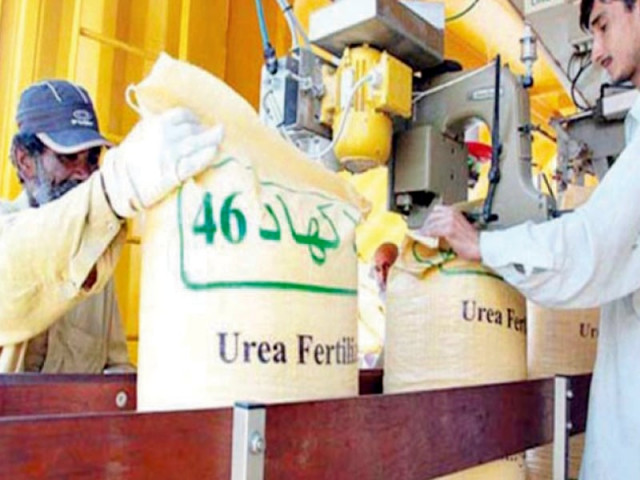Trade finance: IDB to extend $150m for urea and oil import
To provide another €750m in loans, pressure on reserves to ease.

Keeping in view the shortfall, a total of 500,000 tons of urea must be imported for the season. At current international prices, this will cost $172 million. PHOTO: FILE
The Islamic Development Bank (IDB) has agreed to provide trade finance worth $150 million to help Pakistan import fertiliser and petroleum products to meet its needs, a facility that will ease some pressure on shrinking foreign exchange reserves.
The bank will also extend €750 million in loans to Pakistan and its first tranche will be released before August 15.
These assurances were given by Islamic Development Bank President Dr Ahmed Muhammad Ali in a meeting with Finance Minister Ishaq Dar in Jeddah on Friday evening, according to a statement released by the Finance Ministry.
Earlier showing reservations about lack of planning for fertiliser import, the Economic Coordination Committee (ECC), in a meeting held on July 2, asked economic managers to assess the possibility of seeking financing from the Saudi Development Fund and the IDB for urea import.

Members of the ECC – the top economic decision-making body – described the urea supply situation as quite alarming, saying if the fertiliser was not imported, a severe shortage would occur in the current Kharif crop sowing season.
They revealed that in order to make speedy imports, the Ministry of Commerce sought permission for floating a gallop tender as well as exemption from Public Procurement Regulatory Authority (PPRA) Rules 2004. However, the PPRA did not agree, arguing that there was no emergency at present.
They suggested that a seven-day gallop tender would be the preferred option in order to provide adequate quantity of urea to the farmers during the Kharif season.
Keeping in view the shortfall of 300,000 tons and the need for a buffer stock of 200,000 tons, a total of 500,000 tons of urea should be allowed to be imported for the season, they proposed. At current international prices, this quantity will cost $172 million.
Showing displeasure with lack of forward planning and coordination leading to a decline in urea stocks, the ECC suggested that all possible sources, such as the Saudi Development Fund and the IDB, should be tapped for immediately financing urea import and saving Kharif crops, particularly cotton, from production losses.
It also underlined the need for the Economic Affairs Division to explore the possibility of commodity purchase on credit. It was discussed in the meeting that import financing from the Saudi Development Fund was an annual feature and last year’s agreement could be extended to cover urea imports.
The ECC was of the view that these arrangements would reduce the pressure on the dwindling foreign exchange reserves.
About the request for exemption from PPRA rules, the committee proposed that the ministry should approach the relevant authority for the purpose. After deliberations, the ECC allowed the Ministry of Industries to import 300,000 tons of urea for the time being.
Separately, the committee asked the Ministry of Water and Power to make arrangements for providing 60 million cubic feet of gas per day, which was allocated to Guddu power plants from Mari Gas field, to fertiliser plants to help them produce 50,000 tons of fertiliser per month to meet the country’s needs in the Kharif season.
Published in The Express Tribune, August 4th, 2013.
Like Business on Facebook, follow @TribuneBiz on Twitter to stay informed and join in the conversation.



















COMMENTS
Comments are moderated and generally will be posted if they are on-topic and not abusive.
For more information, please see our Comments FAQ